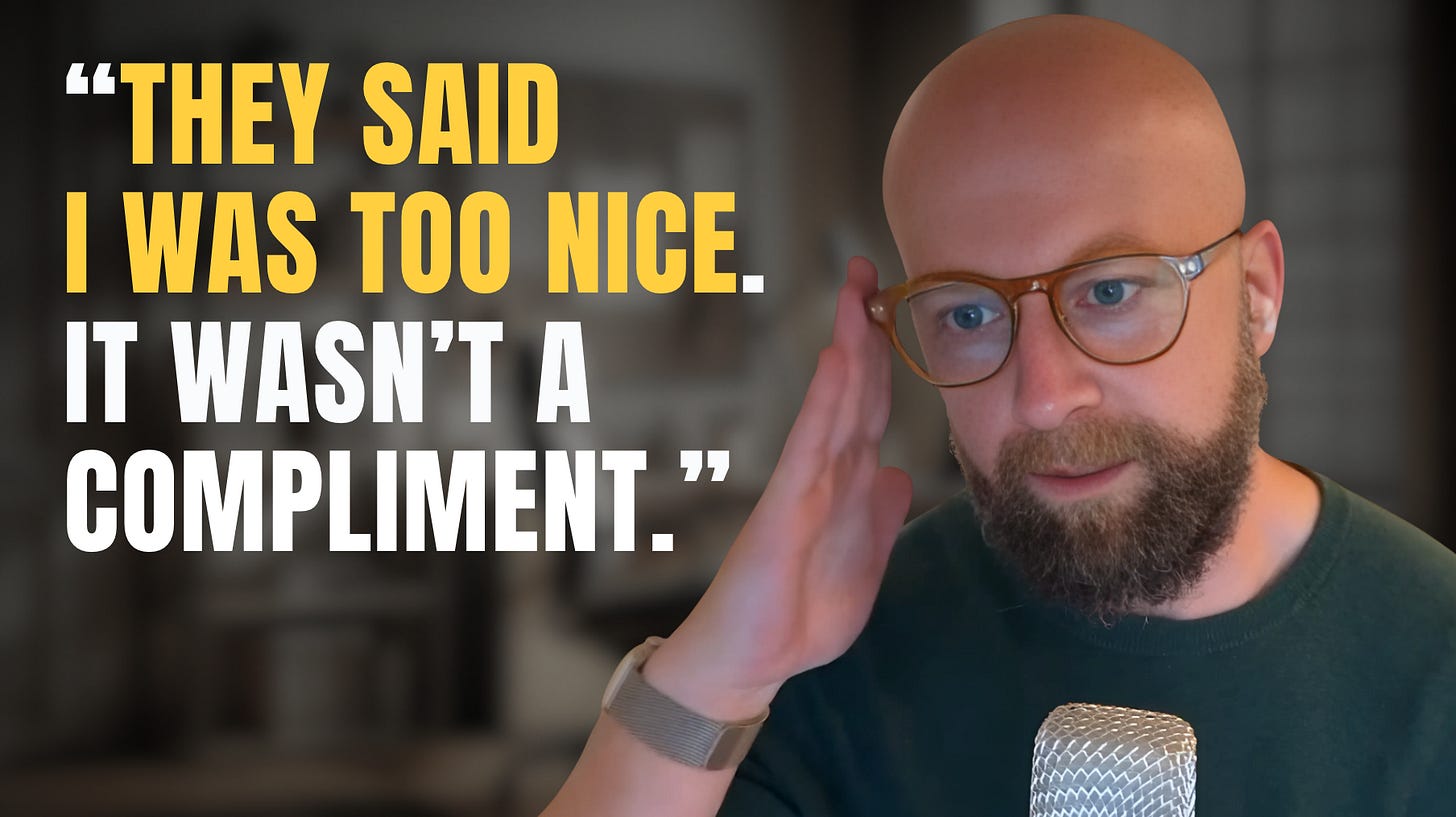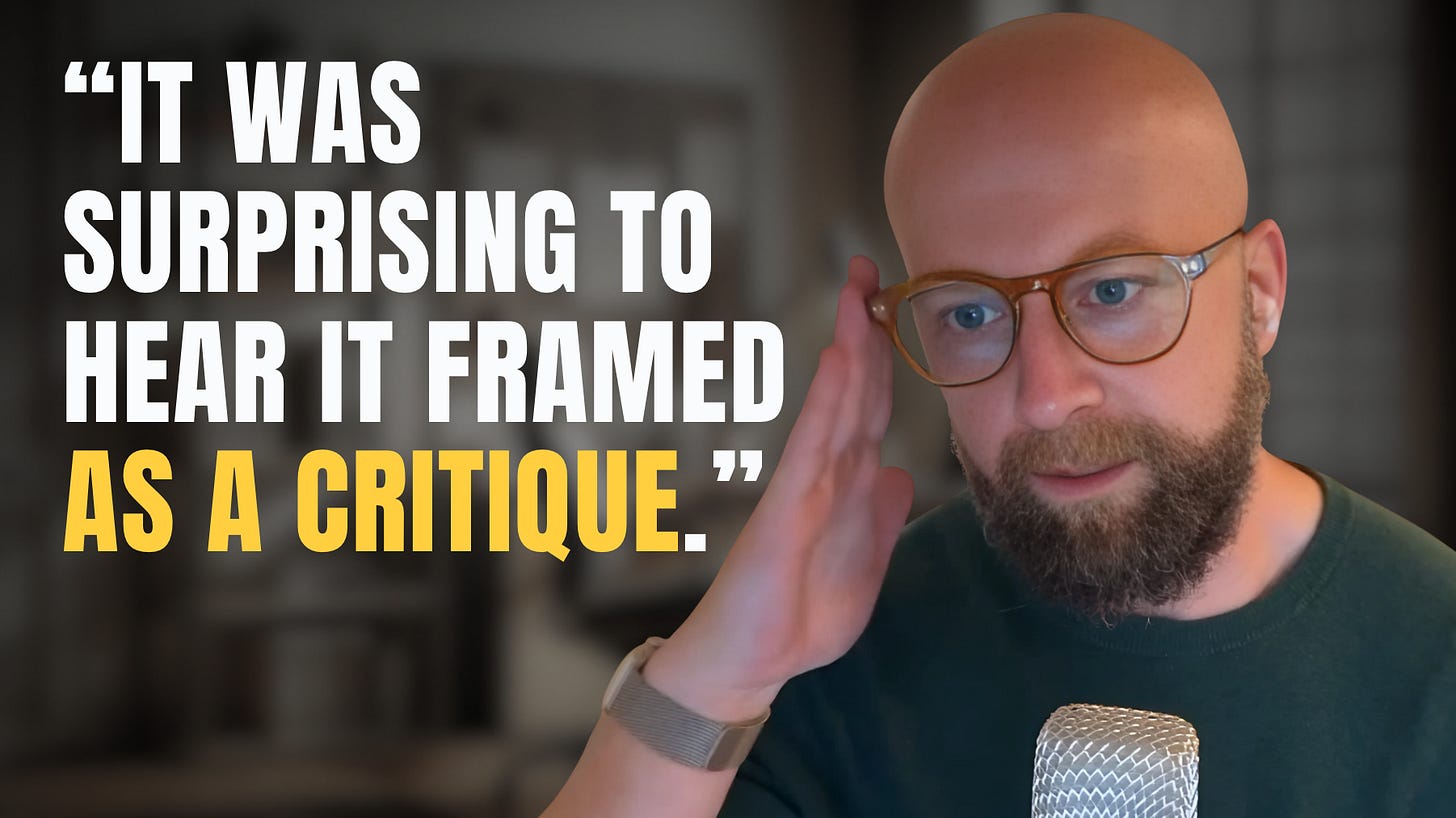“They said I was too nice.” - How this VP of Growth rewrote the rules of leadership
For tech leaders, is being nice a feature, or a bug?
Presented by ThriveStack
The analytics platform built specifically for SaaS growth teams. They make it super easy to track your entire growth model in one place.
No more stitching together five tools, or waiting on BI. They unify all your growth data, flag drop-offs automatically, and alert you before your COO asks what broke.
Most new managers who work at startups and scaleups don’t get any training.
They were strong ICs, with a few instincts about how to treat people, and maybe a vague idea that being supportive is the same as being effective.
And suddenly they’re put in charge of managing others. Most of the time, without any formal training or support.
That’s exactly what happened to Michael Leibovich.
Today, he’s the GM and Head of Growth at Adobe - and he’s held growth leadership roles at Vimeo, Abstract, AppFolio, and Mindbody. But earlier in his career, when he first started managing people, he got a piece of feedback that threw him off balance:
“You’re too nice. And your team likes you too much.”
It wasn’t meant as a compliment. It was a critique.
Before he ever stepped into the tech world, Michael was a touring musician.
He and his band signed with a label and spent nearly seven years playing venues around the world - Japan, Europe, the U.S.
The band’s name was Sherwood, and their sound lived at the intersection of emo, indie, and early 2000s MySpace energy.
In that world, being likable was a huge asset.
So when Michael transitioned into tech, starting in entry-level marketing at Mindbody, those instincts came with him. Empathy. Approachability. People-pleasing. It helped him build trust. It helped him move fast.
But once he started managing others, what worked on stage didn’t translate to a team setting.
“Too understanding” can become a real problem
Michael had just stepped into a functional leadership role, his first time managing a team and owning a full business function.
He was five years into his tech career, still figuring out what kind of leader he wanted to be, when a senior colleague pulled him aside and said:
“You’re too nice. And your team likes you too much.”
At first, he didn’t know what to make of it.
Because at the time, he thought things were going well. His team respected him. They liked him. They were working hard. Delivering good work.
But his boss felt like the team wasn't being pushed hard enough. And his empathy was limiting their output, and performance.
“It was surprising to hear it framed as a critique. I mean, I saw people as people. I cared about them. But I realized I might’ve been a little too understanding, too empathetic.”
This was a high-visibility team. The company was growing. And if he couldn’t find a way to push his team harder, without losing himself in the process, he might not get another shot.
It triggered some deep reflection:
- am I being too soft?
- am I too empathetic?
- am I avoiding hard conversations?
He didn’t overcorrect, but he did evolve
Michael had seen what happens when leaders overcompensate.
(a mistake I've personally made in my own journey)
He didn’t want to become someone he wasn’t, and turn cold and performative overnight.
But letting go of his default instincts wasn’t easy.
“I’ve always cared about how people feel about me. That’s baked into who I am.”
So the idea of being more direct, of possibly being disliked, felt like a personal risk. He had to untangle the part of himself that equated being liked with being valuable.
He still cared deeply.
But he knew the team didn’t need more cheerleading. They needed expectations. Boundaries. Feedback in the moment, not a soft nudge twice a year during review cycles.
So he made some small but intentional changes:
He created emotional distance.
No more watercooler venting. No more blurring the line between peer and manager.He set expectations up front.
Every new hire gets a “How I Work” doc during onboarding. It lays out what success looks like and what kind of feedback to expect.He made feedback a weekly ritual.
Every 1:1 includes space for direct, two-way feedback. It’s part of the rhythm now, not something reserved for performance reviews.And he stopped managing people’s reactions.
“That was the big one for me. Realizing I’m not responsible for how someone reacts to feedback. I just need to show up honestly,” he shared.
The cost of avoiding hard calls
A few years later, those lessons got put to the test.
Michael had a team member who, on paper, was doing fine. Their numbers looked decent. They weren’t missing deadlines. They weren’t breaking any rules.
But something was off.
They were working in a silo. Pushing out work without real input from teammates. Ignoring feedback. Creating quiet friction across the team.
“They weren’t breaking the rules. But they were breaking momentum.”
This was exactly the kind of situation he used to avoid. A gray area. Nothing was completely broken. But things weren’t working.
Michael tried to coach them. He gave direct feedback. Followed through on the new habits he’d built - clear expectations, regular check-ins, real talk.
But nothing changed.
And that’s when the old discomfort crept back in.
He didn’t want to be the bad guy. Didn’t want to be disliked. He still saw their potential. Still believed they were trying.
But then he remembered the advice a mentor once gave him:
“If someone replaced you tomorrow, what would they do?”
He already knew the answer.
They’d let this person go. So he did it. And it sucked.
A lot of new managers struggle with this.
Most new managers don’t get a playbook for what “good leadership” actually looks like.
You get promoted for being a strong IC. You care about the people. You want to do right by your team. And suddenly, you’re faced with decisions you don’t feel ready to make.
So you wait.
You give the benefit of the doubt. You tell yourself it’s just a rough patch. You hold back the hard feedback, hoping things will click into place on their own.
Michael’s story is uniquely his. But this struggle (especially for us people pleasers) isn’t rare.
This is what it looks like to grow from a supportive teammate into a clear, effective leader. It’s strange. It’s messy. It costs you things. And no one tells you when it’s time to act.
So if you’re carrying that quiet weight, that sense that something on your team isn’t working, but you haven’t said the thing yet, try asking the question that helped Michael move forward:
If someone replaced me tomorrow, what would they do here?
You might already know the answer. Even if it’s a hard one.
Catch Michael’s entire story on YouTube
Listen on Spotify
Ready to build your own version of what’s next?
Get my Growth Operating System (launching in 2 weeks!)
Install my exact plug-and-play system for leading a cross-functional growth team - without becoming the bottleneck. Perfect for first-time growth leads who want faster execution, more wins, and a stronger reputation.
→ Sign up for the Growth Operating System
Book a 1:1 Coaching Spot
I work with a small group of ambitious growth leaders navigating what’s next—whether that’s a career leap, a team transition, or a more energizing way to lead.
→ Learn more about coaching




